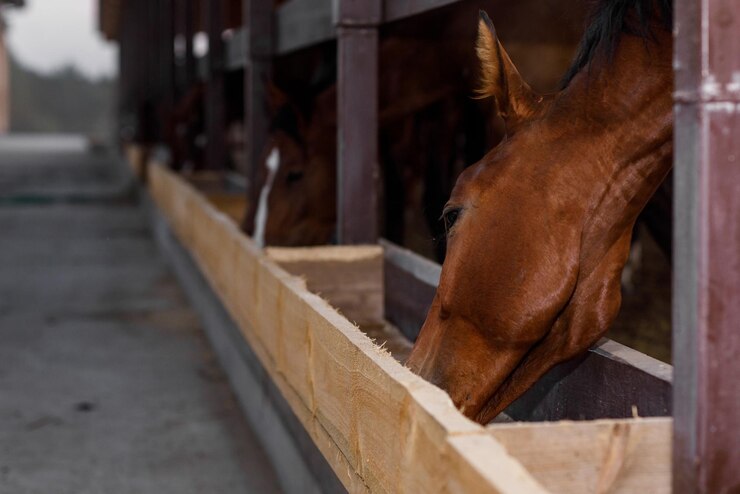When it comes to taking care of horses, equine nutrition plays a significant role in keeping them healthy and energetic. In the horse world, providing a balanced diet is imperative not just for optimal performance but also for the overall well-being of these magnificent creatures. An insight into equine nutrition thus becomes essential for horse owners and enthusiasts.
The concepts of dietary balance and nutrients are key in forming a comprehensive understanding of how to nourish your horse correctly. Many might wonder what exactly equine nutrition involves and how to ensure their horse is receiving the proper diet.

Importance of a Balanced Diet
Equine nutrition is more than just feeding a horse hay and oats; it is a carefully planned regimen that addresses the specific needs of the horse based on various factors like age, activity level, and health status. A balanced diet ensures that the horse receives appropriate levels of nutrients from hay, grains, and supplements.
Essential Nutrients for Horses
Carbohydrates
Carbohydrates are a primary energy source for horses. They are generally derived from fibers in hay and other forage materials. It’s vital to ensure the horse gets the necessary amount of carbohydrates to support their daily energy requirements.
Proteins
For muscle development and repair, proteins are indispensable. Including a mix of legumes, such as alfalfa, can provide the necessary protein levels while ensuring energy support for horses in active work.
Vitamins and Minerals
Vitamins like A, D, and E, along with minerals such as calcium and phosphorus, play a significant role in maintaining vitality and bone health. It is crucial that the diet is supplemented with these elements to prevent nutritional deficiencies in horses.
Choosing the Right Feed
Selecting the right kind of equine feed can be daunting. It’s essential to evaluate each horse’s individual needs. Considerations based on age, weight, and level of activity should be factored in when planning an appropriate feeding regimen.
Hydration and Water Intake
Providing an adequate supply of fresh water is essential for a horse’s digestion and cellular function. Hydration plays a critical role in maintaining the overall health of a horse and should never be overlooked.
Role of Forage
Forage is the cornerstone of any diet intended for equine nutrition. High-quality forage, such as legume and grass hay, should constitute at least 50% of the horse’s daily intake to mimic the diet horses receive in the wild.
Monitoring and Adjustments
The dietary needs of horses may evolve with age or activity changes. Regular weight and health monitoring coupled with possible feed adjustments can ensure that diet aligns with the horses changing requirements.
Feeding Schedules
Implementing a consistent feeding schedule has a visibly positive effect on horse temperament and health. Scheduled feedings cater to their digestive rhythm, reducing stress and maintaining gut health.
Conclusion
An understanding of equine nutrition highlights the importance of dietary balance specific to individual horse needs. Through educated feeding practices and consistent dietary monitoring, horse owners can contribute significantly to their horse’s quality of life.
Along with offering essential nutrients, a comprehensive feeding plan also provides an opportunity to foster a close bond with the horse, ensuring they remain spirited and content throughout their lives.

FAQ Section
What is the primary component of a horse’s diet?
Forage, such as high-quality hay, forms the primary component of a balanced horse diet.
Why is water important in equine nutrition?
Fresh water is critical for digestion, hydration, and nutrient absorption, making it essential for overall horse health.
How do I know if my feed choice suits my horse?
Evaluate your horse’s energy needs, activity level, and health status when selecting feed to ensure it meets their requirements.
This article contains affiliate links. We may earn a commission at no extra cost to you.
